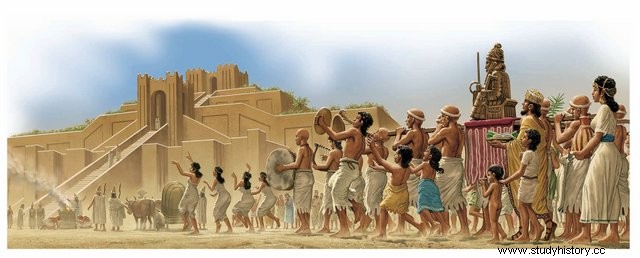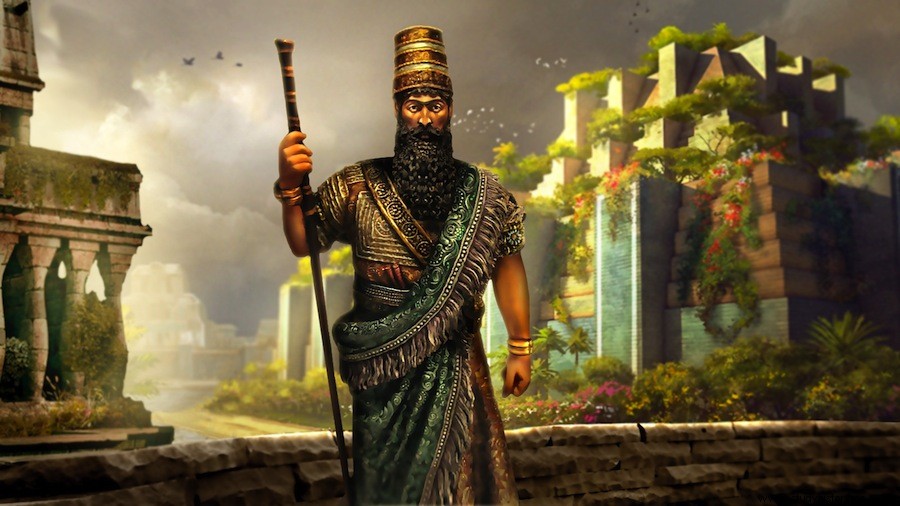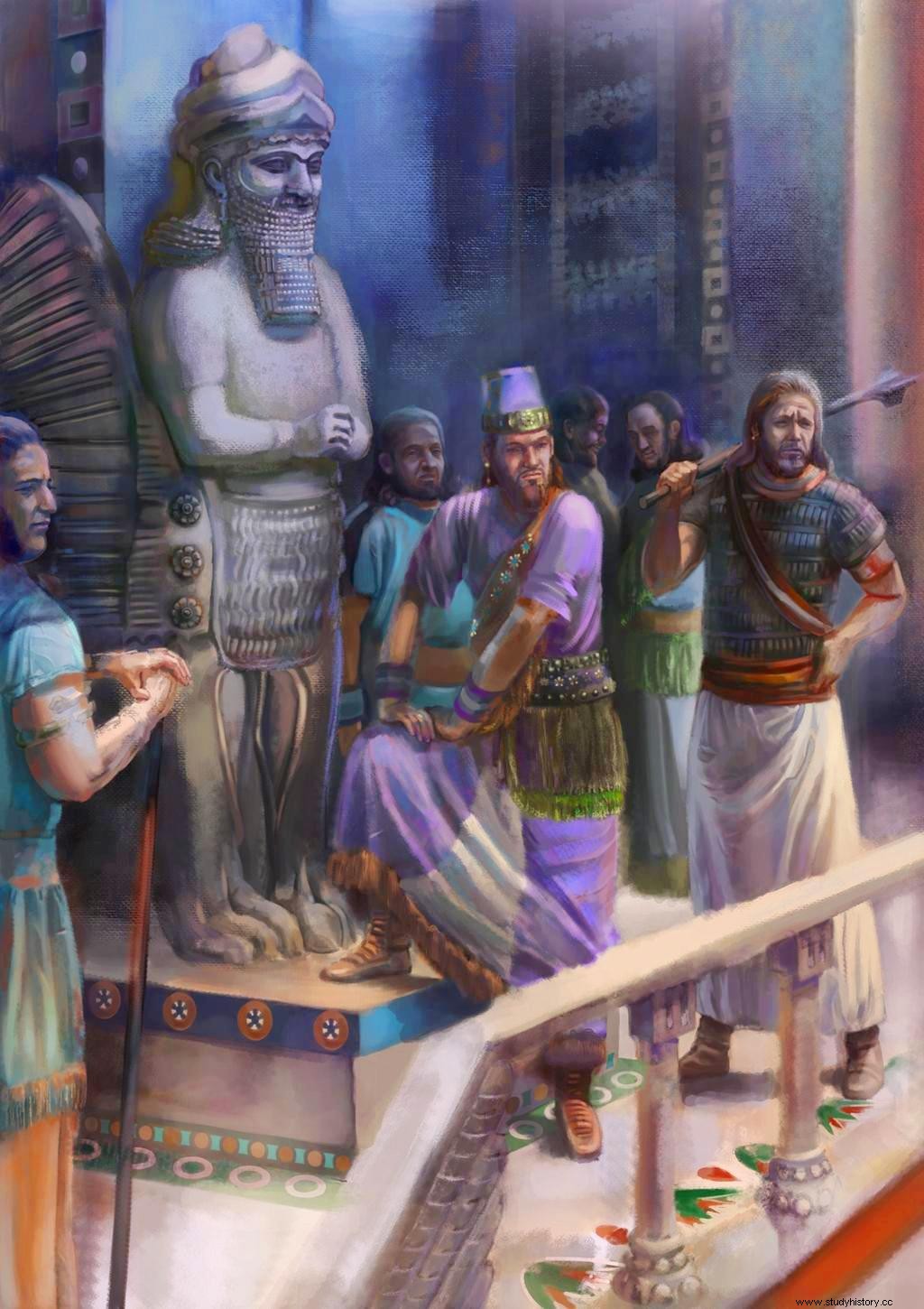It is often said that the first thing we learn about a language are profanity and insults. In fact, a typical joke for newbies, when first arriving in a country, is to be taught swear words as if they were normal, in order to get the innocent in a good trouble. The inhabitants of Mesopotamia were no strangers to the old art of mentioning the family of those who disliked them. Taking advantage of the fact that we are not in children's time now (well, it all depends on when you read this), we are going to see several of those swear words. In any case, I do not advise using this type of outburst, because as a Sumerian proverb says:"A good word is a friend to many men" .

First of all, it should be noted that the insult or coarseness depends on one's own culture. What for one people is rude, for another it may be something normal. What for us is an insult, for a Sumerian it could not be. For example, among us it is very offensive to call a lady a "whore" (excuse me), or a man a "hustler" (excuse me), or "son of a person who maintains relations in exchange for money" (thanks RAE for avoiding me the blush) to someone we dislike. For a Sumerian it would not be an insult. As we have seen in other articles, prostitution was a normal job in Sumeria, and calling a lady a "whore" would be like calling her an "engineer." Nor would a Sumerian be offended by being called "son of a person who maintains relations in exchange for money." He wouldn't understand the insult. If we called him “Shabarra ” (bastard) would depend on the city and the time. For the oldest Sumerians, being a single mother had little to worry about, Sargon of Akhad himself recognizes it without problems. Another matter would be to release it well into the Third Dynasty of Ur or to call it a North Semitic or a well-placed Assyrian. The Assyrian, above all, would invent a whole series of elegant systems for us to remember him, while we search for our teeth inside the scrotum.

Sargon of Akhad
In a town that knew hygiene methods and that forbade doing dirty things in the water canals, a very offensive insult was “Uzuh ” (filthy, dirty, unkempt). A Sumerian proverb says:«It is so dirty that you do not know who is the ass, and who is the groom ”. By the way, than calling someone “Anshebarannita ” (donkey) or “Anshebarannimi ” (donkey) would not have our connotation of “fool”, but for blackheads it would mean that we consider him someone of little fortune and somewhat jinxed. The Sumerians gave animals different qualities than we give them. In the case of calling someone "fool, idiot, fool" you would have to use "Sangdu nutuku ” (the one without a head) or “Nungarra ”. For the same, for a Sumerian it would not make sense to call “Anshekunga ” (mule) in the sense of strong man, but would use “Urmah ” (lion).
Another insult that could be used is “Hara ” (dishonest, scoundrel). It is evident that the Sumerians already knew the art of politics. An interesting insult would be “Lil ” (crazy), because in Sumerian that word was also used to describe the unintelligible sounds of babies, which would be even more offensive than our word. In the section of xenophobic insults, we find in Sumeria the word “Lukurra ” (strange foreigner, rare). We know that the blackheads were as xenophobic as anyone, but no specific insults have been found for the Elamites or other enemies of theirs, or at least, we have not caught the insulting sense if it is in any tablet. The Gutis, mountaineers of the Zagros mountains, were called "mountain dragons", and it was surely an insult, but the meaning is not clear because the word "Ushum ” (dragon) appears related to “Ushumgal ”, which was one of the nicknames of the god Enki. Perhaps one day we will find a myth of this god that will clarify the pejorative relationship between him and the Gutis. Continuing with the insults, call “Igibala ” was very ugly, because it means “traitor”, and the Sumerians, living in city-states, had love for the land very much to heart; “Agaashgi ” is someone very useless who is good for nothing; “Lutumu ” is someone dishonest, that is, what would be called the clerk who steals the peso or who takes money from the cash register; “Zuh ” we can call him who has stolen from us dagger in hand; “Nibulung ” is the one who goes too cocky and has it very believed; “Zizna ” means misshapen, poorly done; “Nisuub ” is a coward, a pusillanimous…

Nibulung?
Curiously, among the Sumerians, a jocular insult was “Ninggu ” (eater, gobbler), while for the Akkadians it was almost a compliment. Another case in which we see different connotations is with the word “Udatush ” (clown), which in Sumeria was another honorable job without insulting second meanings, specifically it was someone who performed shows with bears and pigs. Apparently, the Sumerians liked to see juggling pigs, instead of trained dogs. And if we continue with animals of bad fame, we can use “Kaa ” (fox), which had the meaning of someone cool and cowardly, or “Urgir ” (domesticated dog) which came to mean “glutton”. If you wanted to break up with someone definitively, it was better to brand them as “Urmen ” (irreconcilable enemy) or “Lunamtagga ” (sinner and offender of the gods). Finally, to make it clear who the insults are directed at, the offending word should be followed by the suffix “-men ” (singular) or “-menzen ” (plural), and preceded by the prefix “-lu " (person). So, for example, if we call someone a thief, the correct word would be “Lúzuhmen ”, if someone overcharged us, or “Luzuhmenzen ”If we have just seen the list of corrupt parties in the newspaper, then we must remember that Sumerian was an agglutinating language.
Of course, remember what the great group of Argentine comedians "Les Luthiers" said:«If you face someone stronger and taller than you, remember, there is nothing like a good revolver ”. Or if a seven-foot-tall Sumerian with the legs of a woolly rhinoceros and the chest of a trucker has just insulted you and you don't have a gun handy, simply say:“Nubngeshtuden ” (I have terrible hearing and I haven't understood anything at all), and take the nearest bus in the direction of Ebla.
Contributed by Joshua BedwyR author of In a Dark Blue World
My latest book is now on sale on Amazon:
